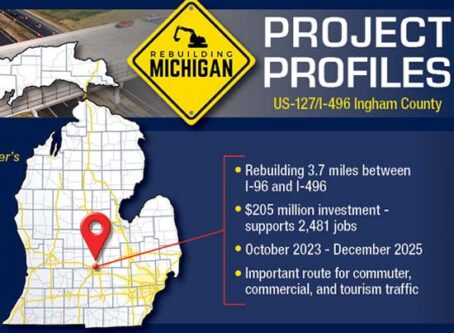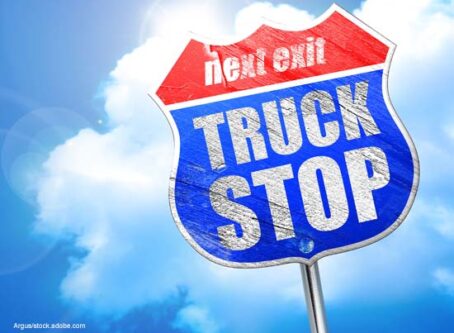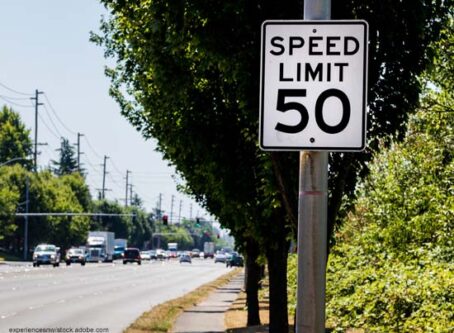Eight states pursue truck platooning rule changes
Arkansas is the latest state to act to revise rules on the use of autonomous large vehicles, and other changes to accommodate driver-assistive truck platooning technology.
There are 30 states that have acted to allow autonomous vehicles through legislation, according to the National Conference of State Legislatures. Another six states permit testing of affected vehicles that operate without a driver through executive order. Five more states allow autonomous vehicles via legislation and executive order.
The rule changes often require amendments to large vehicle following distance rules.
Advocates say truck platooning saves fuel due to reduced aerodynamic drag, lessen traffic congestion, and improve highway safety. Some supporters acknowledge it works best on relatively flat, divided highways outside of populated areas.
Critics question how automated vehicles and traditional vehicles will interact on roadways. Others doubt whether the widespread use of the technology is realistic.
In addition, the U.S. Department of Transportation’s John A. Volpe National Transportation Systems Center reports that Federal Motor Carrier Safety Regulations are likely to get in the way of automated technology.
The Owner-Operator Independent Drivers Association recognizes that the rapid development of autonomous technology has a lot of potential. However, the Association points out the technology poses challenges as it relates to commercial vehicles and highway safety.
Arkansas
Arkansas Gov. Sarah Huckabee Sanders has signed into law a bill to revise the state’s existing truck platooning rules.
Since 2017, the state has permitted platooning as long as an actively engaged driver was located in each cab of affected trucks. Trucks in a platoon also are permitted to be within 200 feet of the lead truck.
Previously HB1321 , the new law loosens the driver requirement to instead authorize only the lead truck to have a driver in the cab.
The change passed through the legislature with unanimous consent.
California
A California Assembly bill is intended to prevent the use of autonomous trucks on state roadways.
Since 2015, the operation of autonomous trucks on state roadways is prohibited. State law, however, allows for testing and operation of autonomous vehicles weighing less than 10,000 pounds without a driver behind the wheel.
The state Department of Motor Vehicles is considering changes to the ban on autonomous trucks.
The bill, AB316, is an effort to prohibit the possible rule change.
Specifically, the operation of autonomous vehicles with a gross vehicle weight of 10,000 pounds or more would be prohibited from operation for testing purposes, transporting goods, or transporting passengers without a “human safety operator physically present” in the vehicle during operation.
Assemblymember Cecilia Aguiar-Curry, D-Winters, said on social media her bill “will make sure that our driving public and trucking jobs for California working families are preserved as we study the merits of automated trucks.”
Illinois
A similar pursuit is underway at the Illinois statehouse.
The bill in the House Transportation: Vehicles and Safety Committee would prohibit an operator of an autonomous vehicle from engaging in the transport of interstate commerce or the transporting of passengers, or the transporting of goods unless a human safety operator is physically present in the autonomous vehicle and has the ability to monitor the vehicle’s performance and intervene if necessary.
The bill is HB1403. The Senate version, SB306, awaits assignment to committee.
Indiana
Meanwhile, pursuit has ended at the Indiana statehouse to modify autonomous vehicle rules in the state.
Indiana law authorizes automated vehicle platooning to operate “at speeds and following distances that are faster and closer than would be reasonable and prudent without electronic coordination.”
A Senate bill, SB141, called for expanding statute to specify that a person may not operate an automated vehicle on a highway unless a human operator is physically present in the affected vehicle.
Operators must also meet all state and federal qualifications to operate a vehicle and an automated vehicle.
The bill remained in the Senate Homeland Security and Transportation Committee at the deadline to advance, effectively killing it for the year.
Kentucky
One Kentucky bill on the House floor would amend the state’s requirement for truck platooning.
The state authorizes truck platooning. The rule excludes the trailing vehicle in the platoon from the state’s two-second rule for following distance, regardless of speed.
Additionally, a human driver is required to be behind the wheel of a trailing platoon vehicle.
The bill, HB135, would authorize only the lead vehicle in the platoon to have a human driver behind the wheel. A requirement is included that trailing vehicles be fully engaged.
Mississippi
Two bills halfway through the Mississippi statehouse would revise truck platooning rules.
State law exempts platooning vehicles from the 300-foot following distance minimum while traveling on divided multiple-lane highways in each direction. Platoons would be limited to two trucks.
The state Department of Transportation and the Department of Public Safety are required to approve any plans for platooning operations.
HB1003 and SB2569 would amend statute to permit operation of platoons on state roadways without a human driver in trailing vehicles.
A requirement is included that affected vehicles must be fully engaged to operate without a human driver behind the wheel.
The bills each advanced from their originating chamber and have moved to the opposite chamber.
Missouri
A pair of Missouri bills would authorize self-driving truck operations on roadways around the state.
HB624 and SB188 would permit a group of individual vehicles to use utilize vehicle-to-vehicle communications to travel uniformly at electronically coordinated speeds.
The bills also address the following distances of affected vehicles. State law prohibits large vehicles from following another such vehicle within 300 feet on a highway. The legislation would exempt from the following distance rule nonlead vehicles in platoons.
Both bills are in committee.
Tennessee
Two Tennessee bills would change the requirements for drivers of commercial vehicles in a platoon.
State law authorizes a person to operate a platoon on state roadways if certain conditions are met, including the requirement the operator behind the wheel of each commercial vehicle in the platoon holds a valid CDL.
HB139/SB83 would amend statute to require only the operator behind the wheel of the lead platoon vehicle have an appropriately endorsed CDL. LL









